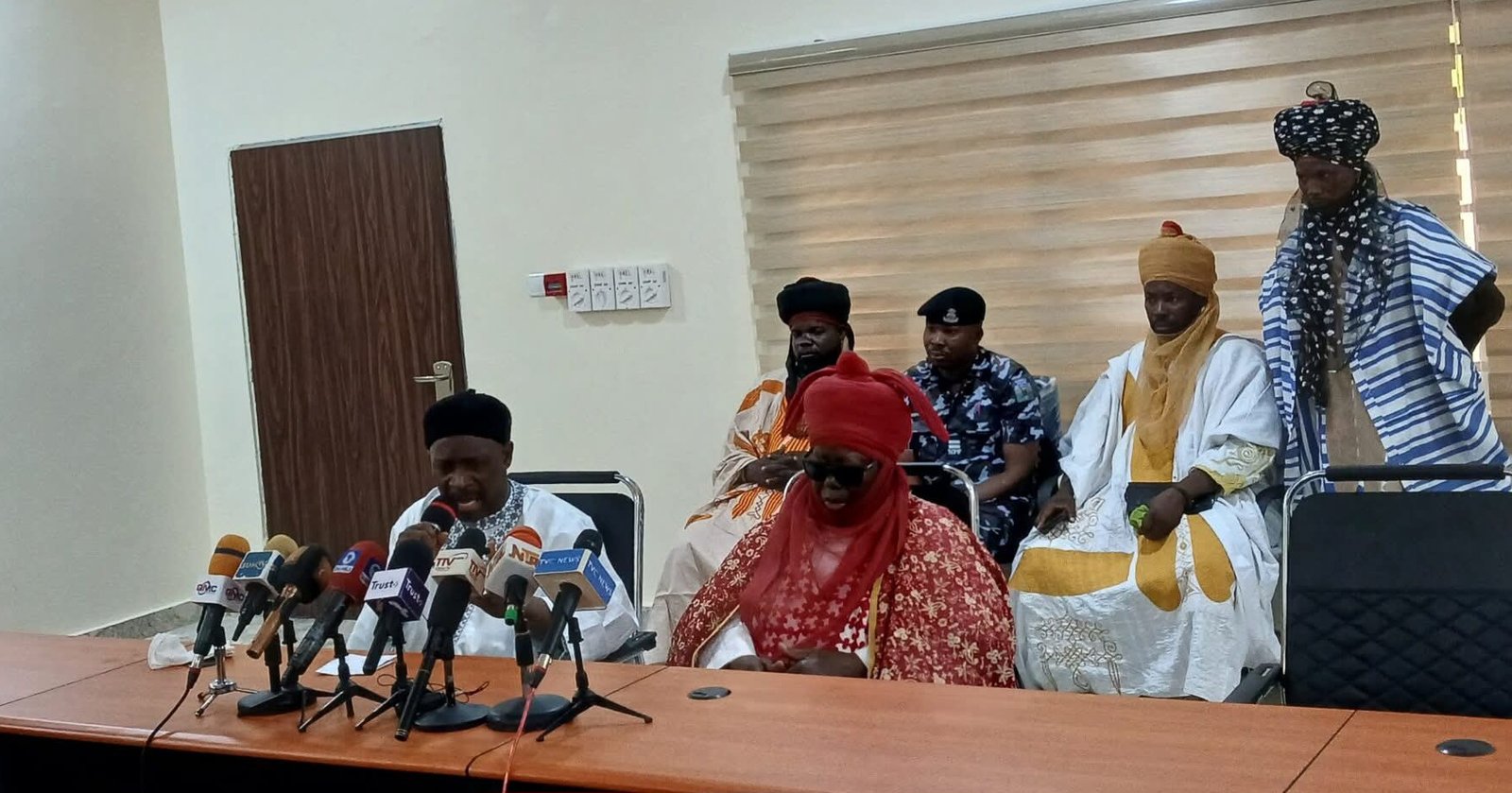Gombe suspends 2 traditional leaders over fatal farmers-herders clashes

L-R: Gombe Commissioner for Justice, Zubair Umar and Mai Kaltungo Engineer Saleh Mohammed addressing a press conference, on Wednesday in Gombe
Gombe State Government has announced the immediate suspension of a distrct head and a village head for failing to act proactively to prevent farmers-herders clashes in their area.
The decision to suspend the two traditional leaders was taken during an expanded State Security Council on Wednesday.
The conflict, which occurred in Funakaye Local Government Area, to the locals.
The Commissioner for Justice and Attorney-General of the state, Mr Zubair Umar, told journalists that the meeting was convened to find amicable resolution of the crisis.
“The recent resurgence of the farmer-herder crisis in some parts of the state was brought before the Security Council, and after deliberations, it led to the suspension of two traditional rulers.
“The Council viewed the failure of the traditional rulers as a contributing factor to the incident that occurred in Funakaye LGA.
“To serve as a deterrent, the Council decided to impose sanctions on the concerned traditional rulers, a Village Head and a District Head, who should have acted proactively to prevent the crisis,” he added.
The Commissioner added that investigations were ongoing and that details would be made public upon conclusion.
Thd Mai Kaltungo,Engineer Saleh Mohammed, who is also the Deputy Chairman of the state Council of Emirs and Chiefs, said that the suspension was to allow for proper investigation.
“We hope that by the end of the investigation, if they provide satisfactory explanations as to why they couldn’t prevent the crisis, they will be reinstated to their positions as Village and District Heads. This is not a dismissal; they have not lost their jobs,” he said.
Mohammed urged farmers and herders to live peacefully and tolerate one another, emphasising that Gombe remains one of the most peaceful states in Nigeria.
“The traditional rulers live among their people; we understand them and know how best to sensitise them,” he added.




